Podcast
1543: The Journey First Framework for Account-Based B2B Growth with Brent Keltner
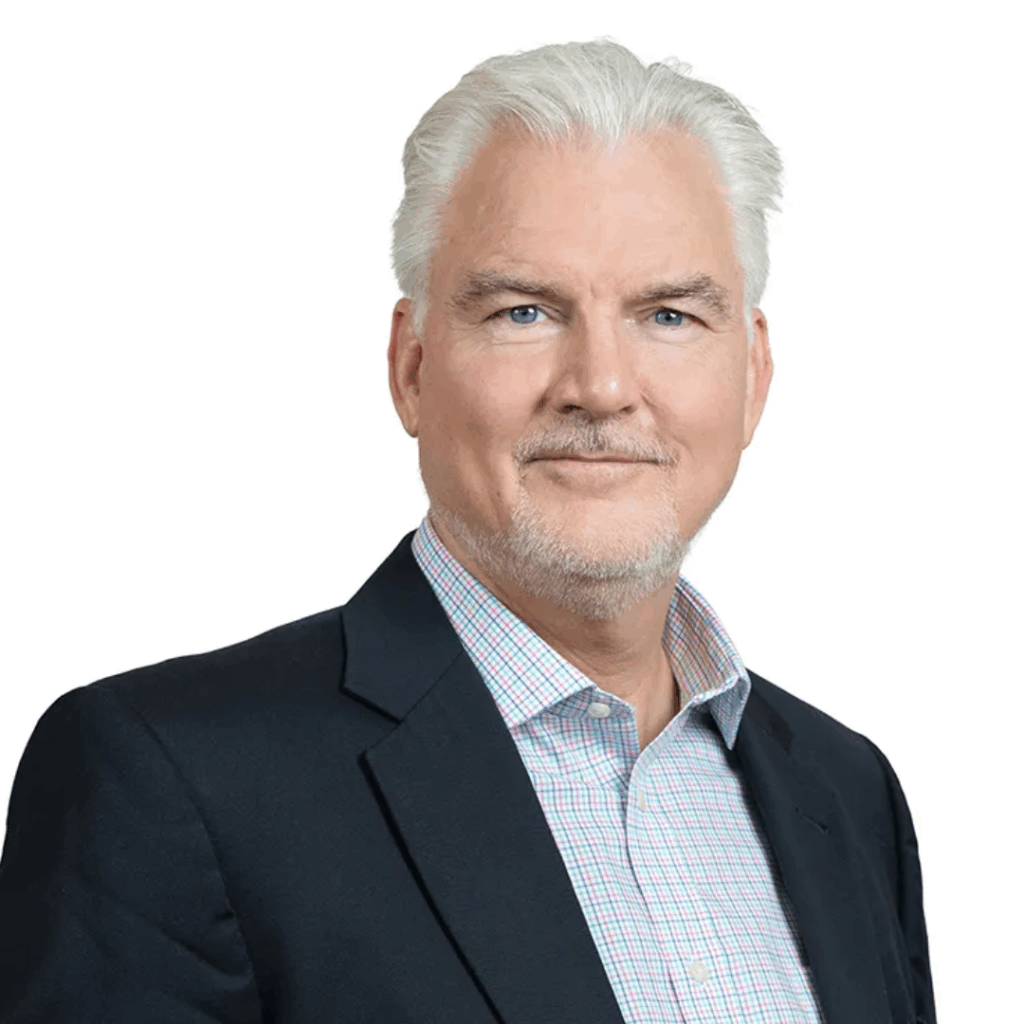
From Stanford and the RAND Corporation to leading revenue teams in the commercial world, Brent Keltner, PhD, has spent his career decoding how complex B2B deals are actually closed. As founder and president of Winalytics, Brent helps mid-market and enterprise teams move beyond product pitching to true account-based growth. He’s the author of “The Revenue Acceleration Playbook” and the forthcoming “Journey First Marketing,” a book that challenges one of B2B’s biggest bad habits: obsessing over individual personas when companies actually buy in committees. In this episode, Brent reveals why traditional contact-focused marketing leaves so much revenue on the table and how to flip your entire go-to-market motion around a simple idea: accounts buy, personas don’t. You’ll hear how to design websites that speak to every member of the buying committee, why customer stories should be your #1 content asset (not #5), and how to connect product value, business value, and corporate value so that users, budget owners, and risk-averse stakeholders all see themselves in your message.
Brent also breaks down a practical roadmap for teams stuck in contact scoring and lead chaos. He explains how to use tools like ChatGPT on top of your CRM to spot real buying committees (not just random clickers or competitors snooping), how to build three aligned content streams for your core buyer types, and how to reuse a single customer story across your entire funnel, website, social, sales decks, and beyond. Whether you’re a CMO, CRO, founder, or product marketer, you’ll come away with a clearer picture of what true account-based enablement looks like in the real world and how a few smart changes can unlock faster, more predictable growth.
Quotes:
"Accounts buy. Personas don’t, and every part of your marketing should reflect that reality.”
“If your customers aren’t saying it consistently, it isn’t true, no matter how often your CEO repeats it.”
“Customer stories are the only asset that turn ‘me selling to you’ into ‘we solving a problem together.’”
Resources:
- Winalytics LLC
- Brent Keltner on LinkedIn
- The Revenue Acceleration Playbook: Creating an Authentic Buyer Journey Across Sales, Marketing, and Customer Success on Amazon
Podcast: Play in new window | Download (Duration: 27:45 — 38.1MB) | Embed
Subscribe: Apple Podcasts | Spotify | Amazon Music | iHeartRadio | Podchaser | RSS
1542: Profit Acceleration & Predictable Profit for Service-Based Entrepreneurs with Cardinal Business Advisor with Jane Parmel

Service-based entrepreneurs often launch a business to do what they love, only to find themselves overwhelmed by tasks, burned out, and tied to operations they never planned for. In this episode, profit acceleration strategist Jane Parmel joins Robert Plank to explain why the real job of a business owner isn’t “doing the work” but leading the business. Drawing from her journey from teacher to children’s party center owner to coach, Jane unpacks how over-involvement, emotional attachment, and fear of delegation quietly destroy profit, stall growth, and keep owners stuck in the business instead of working on it.
Jane explains why mindset is the first system you must fix, from the belief that “no one can do it as well as me” to the dangerous comfort of “we’ve always done it this way.” You’ll hear how to step into the role of observer instead of constant doer, empower employees to take ownership, and design operations that support clarity, confidence, and cash flow. If you’re overwhelmed, short on time, and tired of your business depending on your every move, this conversation will show you how to embrace change, build structure, and finally create a business that serves your life, not the other way around.
Quotes:
“The moment you stop doing everything yourself and start leading your business, you stop surviving and start growing.”
“If you’re the most expensive person in the company, you can’t afford to be doing the cheapest tasks.”
“Your business will only grow to the level you’re willing to delegate, document, and let other people win with you.”
Resources:
Podcast: Play in new window | Download (Duration: 23:13 — 31.9MB) | Embed
Subscribe: Apple Podcasts | Spotify | Amazon Music | iHeartRadio | Podchaser | RSS
1541: LinkedIn Sales Outreach & Lead Generation Using Skoop AI Video Messages with Troy Hipolito
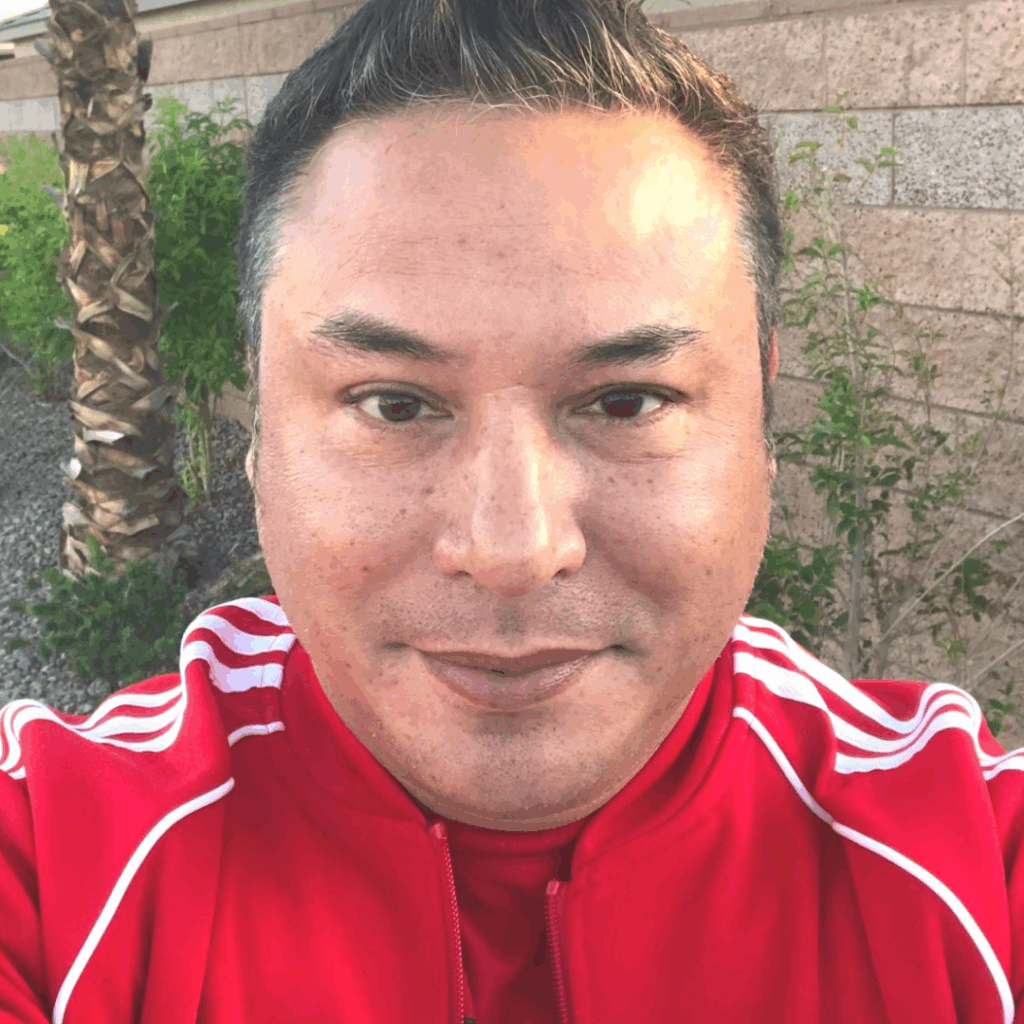
Tired of random, low-quality LinkedIn calls or no calls at all? In this episode, Troy Hipolito (a.k.a. the “Not So Boring LinkedIn Guy” and former Swiss-Filipino gamification designer) breaks down how he helps B2B and service-based businesses turn LinkedIn into a consistent pipeline of vetted, high-value meetings. After agency work with Fortune 500 brands dried up, Troy reinvented his business using LinkedIn, combining “slow dating” relationship-building with tight systems and clear daily workflows. The result: a predictable process that leverages videos, content, events, and smart follow-up instead of spammy cold pitches and random hustle.
Troy reveals the exact framework behind Skoop, his Chrome extension and dashboard, which boosts first-message-to-booked-meeting conversions from ~3% to 21%, a 6x improvement, using short, raw, hyper-personalized videos embedded directly in LinkedIn DMs. You’ll learn how to fix a “jacked up” profile that repels your ideal clients, why you only really make money on LinkedIn in two places (content and DMs), how to structure free/low-ticket/high-ticket offers that feed each other, and how to use VAs, SOPs, and repeatable systems so you only spend 30 minutes a day recording videos while your backend runs like a machine. If you want more (and better) meetings without turning LinkedIn into a full-time job, this conversation gives you the blueprint.
Quotes:
“There’s no single silver bullet. The core is providing value, but you have to distribute that value across multiple channels.”
“LinkedIn is not a Facebook marketplace. It’s a networking domain. It’s about building real relationships, not just ‘buy my stuff.’”
“We took that first LinkedIn message from about a 3% conversion to 21%, not to a reply, but to a vetted booked meeting.”
“People don’t read; they scan. Anything more than three lines is too much. That’s why the message has to be context, content, context.”
“Slow down and ‘slow date’ your clients. The sooner you realize you’re not a fit, the sooner you can move on with clarity.”
Resources:
Podcast: Play in new window | Download (Duration: 36:09 — 33.1MB) | Embed
Subscribe: Apple Podcasts | Spotify | Amazon Music | iHeartRadio | Podchaser | RSS
1540: Run Better Zoom Meetings: POPRA Planning, Handling HIPPOs, and High-Stakes Virtual Facilitation with Evan Unger
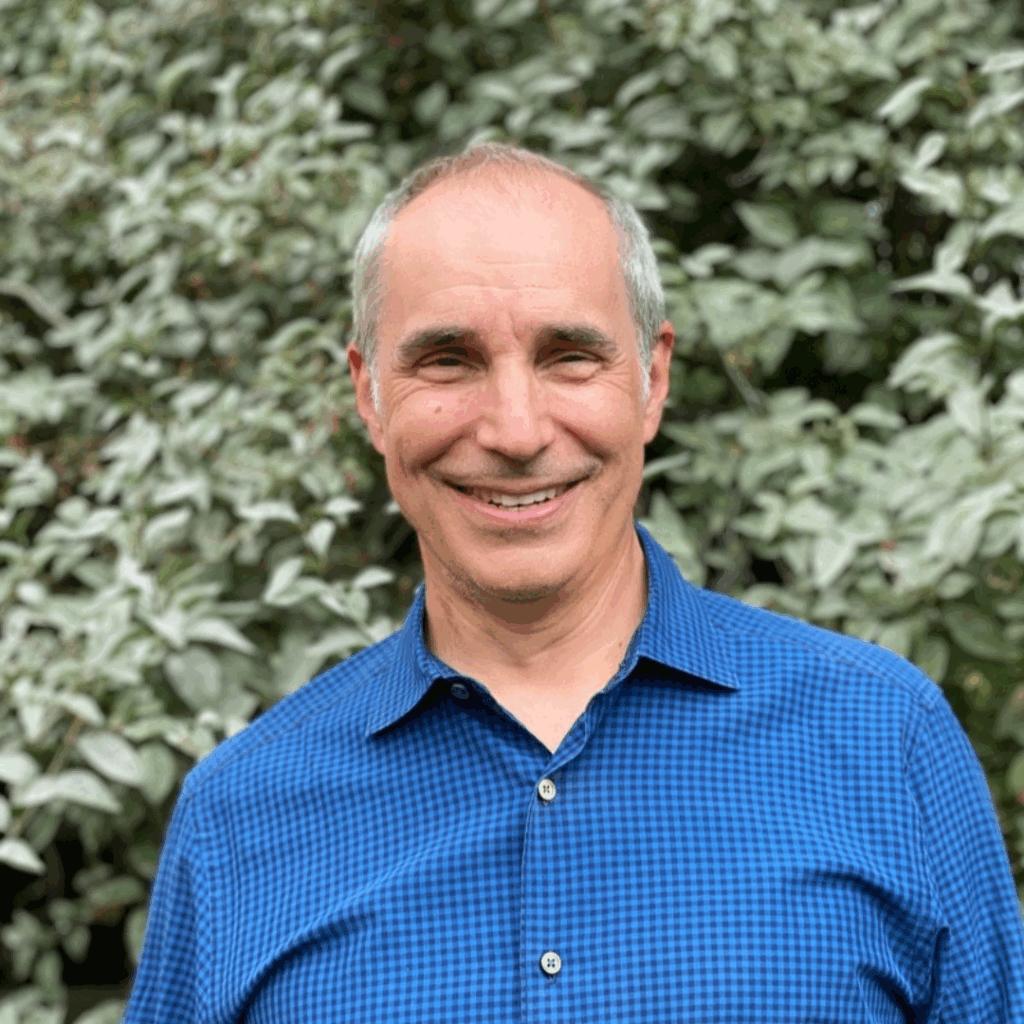
Evan Unger is a recognized expert in organizational change, leadership development, and collaborative facilitation. With decades of experience consulting for major enterprises, including large pharmaceutical companies and insurance organizations, Evan specializes in transforming workplace culture by empowering change agents at every level. His approach moves beyond traditional training, focusing on deep, practice-based skill transfer to foster genuine collaboration, reduce bureaucracy, and maximize meeting effectiveness.
In this episode of Marketer of the Day, Evan Unger joins Robert Plank to discuss the art (and science) of running effective, high-stakes meetings. Evan reveals why most meetings are a microcosm of organizational dysfunction and how targeting meeting culture can boost company-wide productivity. Discover the “five fundamentals” for collaborative leadership, learn how to handle challenging personalities (including the “HiPPO” dynamic), and hear why real transformation starts with top-down engagement and extensive practice, not just passive training videos. Tune in for actionable strategies to reclaim time, drive better decisions, and create a culture of buy-in from the very first meeting.
Quotes:
“The fastest way to transform your company’s culture is to change the way you lead meetings because every meeting is a window into your organization’s soul.”
“Real leadership isn’t about having all the answers. It’s about creating space for every voice and guiding your team to believe, ‘We did this ourselves.’”
“You can’t shift a culture with information alone. Transformation happens when leaders show up, practice together, and model the behaviors they want to see.”
Resources:
Podcast: Play in new window | Download (Duration: 30:36 — 42.0MB) | Embed
Subscribe: Apple Podcasts | Spotify | Amazon Music | iHeartRadio | Podchaser | RSS
1539: AI, PR, and Media Visibility for Founders with Gloria Chou
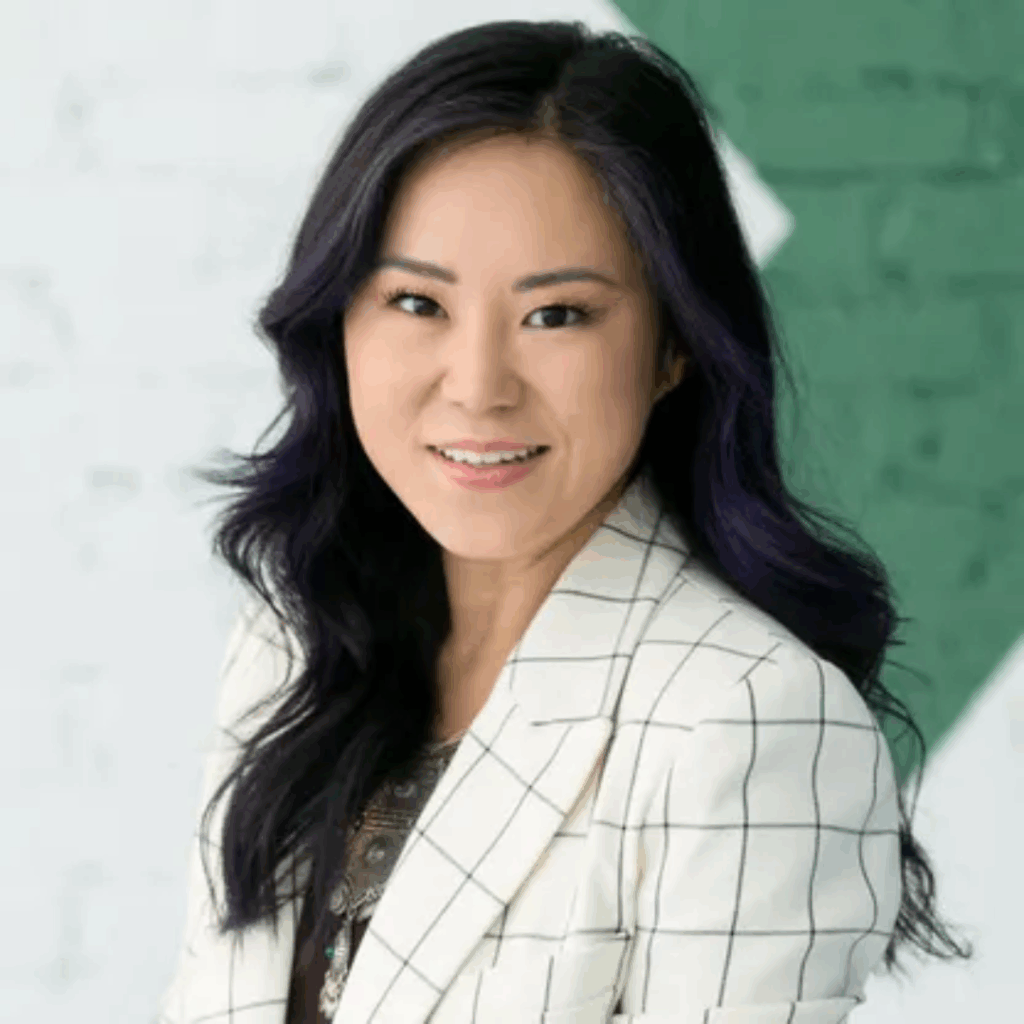
Gloria Chou is an award-winning small business PR expert recognized for revolutionizing media visibility for overlooked founders, especially women and minority entrepreneurs. As the creator of the “CPR” pitching method and a fierce advocate for leveling the PR playing field, Gloria leverages free AI tools to help brands break through traditional barriers without a budget or gatekeepers. She’s on a mission to help product-based businesses get featured in mainstream media, build credible backlinks, and earn trust in the age of AI-driven search.
In this episode of Marketer of the Day, Gloria Chou joins Robert Plank to explore the dramatic shift from traditional SEO to AI-powered recommendations for brands. Gloria reveals why being seen by large language models (like ChatGPT and Perplexity) is now more important than ever and shares actionable steps for founders to get featured in podcasts, editorial articles, and gift guides. Tune in to learn about leveraging real-time AI tools for competitive research, media pitch creation, and maximizing content repurposing, plus the “one window of opportunity” founders cannot afford to miss.
Quotes:
“If you’re not being recommended by AI, if ChatGPT, Perplexity, or Gemini aren’t mentioning you, then to today’s shoppers, you’re invisible. Media coverage is now your strongest trust signal.”
“Right now is a once-in-a-generation window for founders; you don’t need a massive budget or thousands of followers. Small brands finally have the chance to compete with giants, if you act before the algorithms choose their favorites.”
“AI is rewriting the rules of marketing. It’s not about stuffing websites with keywords but about building credible backlinks and getting your story told. Thoughtful pitches and real coverage are what move you forward.”
Resources:
Podcast: Play in new window | Download (Duration: 24:15 — 33.3MB) | Embed
Subscribe: Apple Podcasts | Spotify | Amazon Music | iHeartRadio | Podchaser | RSS
1538: B2B Marketing Alignment, Focus, and Navigating Complexity with Kathy Floam Greenspan
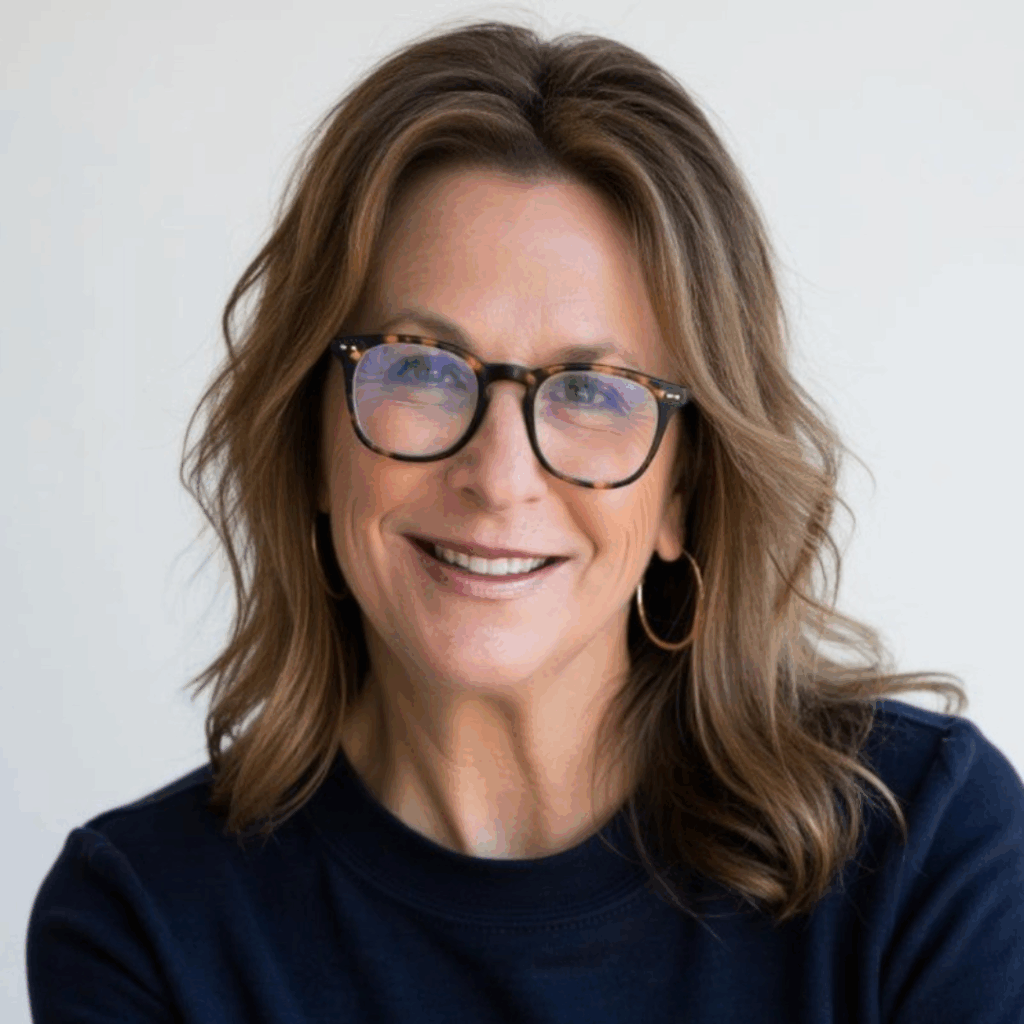
Kathy Floam Greenspan is a veteran B2B marketing expert with over 25 years of experience helping organizations align marketing with real business outcomes. As president of POM Agency, she is passionate about cutting through the noise in fast-moving industries like tech, cybersecurity, and government contracting. Kathy specializes in helping lean marketing teams deliver impactful results despite resource constraints and is a strong advocate of clarity, focus, and practical use of AI to drive growth.
In this episode of Marketer of the Day, Kathy Floam Greenspan joins Robert Plank to discuss the growing pressures on marketing teams, rising expectations, limited capacity, and constant change. Based on a survey of over 100 B2B marketers, Kathy reveals why misalignment, resource gaps, and unclear goals hinder performance and shares four strategic shifts to help teams reclaim focus and momentum in 2026. Learn how to partner smarter, clean up your data ecosystem, and use AI as a collaborator, not a crutch. Kathy offers actionable advice for marketers striving to stay the course, protect priorities, and create lasting impact in chaotic times.
Quotes:
“If everything is a priority, nothing is. Our role as marketers is to protect focus and stay the course, especially these days.”
“Marketers are being asked to deliver more impact without more capacity, forcing tough trade-offs and constant prioritization.”
“AI is incredibly powerful, but marketing is still very human work. Use AI as a collaborator, not a crutch to walk before you run.”
Resources:
Podcast: Play in new window | Download (Duration: 29:50 — 41.0MB) | Embed
Subscribe: Apple Podcasts | Spotify | Amazon Music | iHeartRadio | Podchaser | RSS
1537: AI SEO for SaaS: Unlocking AI Search, Revenue, and Market Shifts with Apoorv Sharma

Apoorv Sharma is an AI SEO strategist, co-founder of Derivate X, and a leader in AI-first marketing for SaaS and tech companies. Based in Bangalore, India, Apoorv helps brands navigate the rapid shift from traditional search engines to LLMs and AI platforms like ChatGPT and Gemini. By optimizing content for AI visibility instead of just Google rankings, he empowers organizations to appear where modern buyers make decisions. Known for his hands-on, research-driven process, Apoorv guides clients through the evolving world of AI search and digital discovery, helping them future-proof their presence, drive revenue, and adapt to the pace of technological change.
In this episode of Marketer of the Day, Apoorv joins Robert Plank to reveal the new playbook for AI SEO. He explains how business owners can adapt to shifting search patterns, why top-of-funnel content is fading, and the steps needed to win in AI-driven rankings. Discover the real challenges behind AI SEO: from accidental brand confusion and overcoming search system quirks to navigating a price-sensitive market and justifying the investment. Apoorv shares actionable strategies for targeting long-tail queries, associating SEO efforts with revenue, and continuously adjusting content and positioning to stay ahead as AI reshapes how buyers find and trust solutions online.
Quotes:
“Search behavior is shifting so fast, even people who don’t know English are using ChatGPT more than Google.”
“SEO without clarity is just wasted money.”
“The top of the funnel is almost dead. Focus on the middle and bottom; those are your lowest-hanging fruits.”
“AI SEO isn’t just about rankings; it’s about training the librarian so your content gets recommended to the right buyers.”
Resources:
Podcast: Play in new window | Download (Duration: 26:33 — 36.5MB) | Embed
Subscribe: Apple Podcasts | Spotify | Amazon Music | iHeartRadio | Podchaser | RSS
1536: Energizing Leadership, Accountability, and Team Potential with Pamela Potts

Pamela Potts is a leadership development expert, coach, and author dedicated to transforming how leaders energize themselves and their teams. Drawing on years of experience as an entrepreneur, consultant, and facilitator, Pamela helps business owners and professionals integrate coaching skills into leadership, enhance energy management, and unlock hidden potential in themselves and others.
In this episode of Marketer of the Day, Pamela Potts joins Robert Plank to explore the power of the Leader Coach Approach. She reveals how understanding your personal energy, practicing self-awareness, and building coaching skills can revolutionize leadership outcomes, driving both personal and business growth. Pamela discusses why so many leaders struggle with accountability and implementation, shares her OMA coaching method, and demonstrates how to foster joy and sustainability in professional life. Listeners will discover how to identify and leverage individual strengths, why curiosity is vital for progress, and how adopting a coaching mindset can transform teams and create meaningful results.
Quotes:
"You can't be curious and judgmental at the same time."
"Look for what energizes you, and it's okay to focus on what brings you joy."
"As leaders, our job is to get results through others, not just ourselves."
“When you shift from solving to asking questions, you become a leader who coaches.”
Resources:
Podcast: Play in new window | Download (Duration: 27:27 — 37.7MB) | Embed
Subscribe: Apple Podcasts | Spotify | Amazon Music | iHeartRadio | Podchaser | RSS
1535: Mindset, Mentorship & Health: From Corporate Finance to Natural Wellness with Victor Dedaj
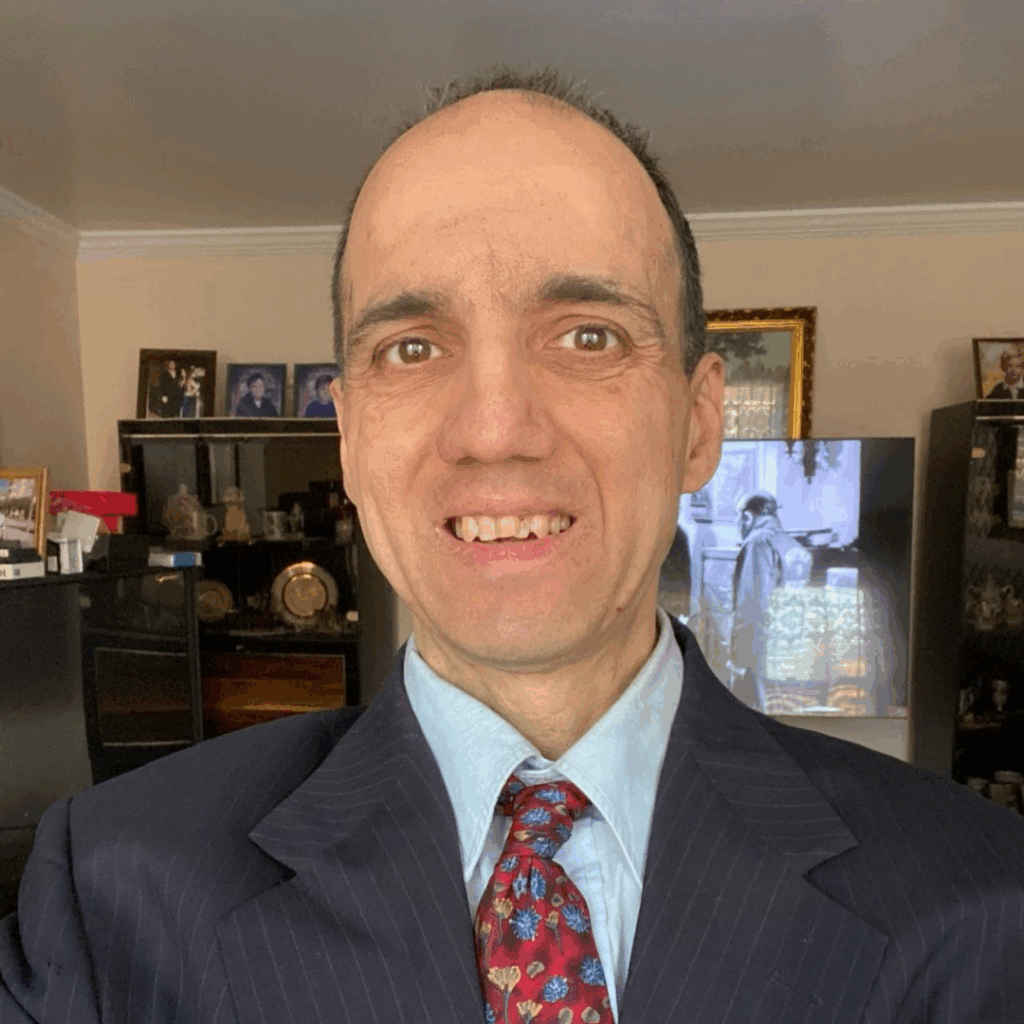
Victor Dedaj is an entrepreneur, naturopathic expert, and co-author of "Success Breakthroughs" (with Jack Canfield). After two decades in corporate finance, Victor pivoted to health, wellness, and mindset coaching, challenging mainstream misconceptions about diet, cholesterol, and sleep. He is passionate about helping others reclaim health, break limiting beliefs, and create fulfillment in life and business. Drawing from personal experience and mentorship from leaders like Jack Canfield, Victor empowers others to take responsibility for their outcomes, cultivate success mindsets, and seek trustworthy guidance on the journey to well-being and entrepreneurship.
In this episode of Marketer of the Day, Victor Dedaj joins Robert Plank to break down persistent health myths, the critical role of sleep for entrepreneurs, and how mindset and mentorship accelerate business and wellness growth. Victor shares actionable advice on taking control of your health, the importance of questioning medical “truths,” and why adopting a positive, solution-focused mindset can transform every area of your life.
Quotes:
“Success leaves clues. Don’t try to reinvent the wheel; learn from those who came before you.”
“Take 100% responsibility for your life. You may not control every event, but you control your response and the outcome.”
"Too often, we surrender the responsibility for our health; knowledge and action are the real power."
Resources:
Podcast: Play in new window | Download (Duration: 26:40 — 36.6MB) | Embed
Subscribe: Apple Podcasts | Spotify | Amazon Music | iHeartRadio | Podchaser | RSS
1534: Project Blue World: Global Happiness, Sustainable Energy, and Social Impact with Lori Payne
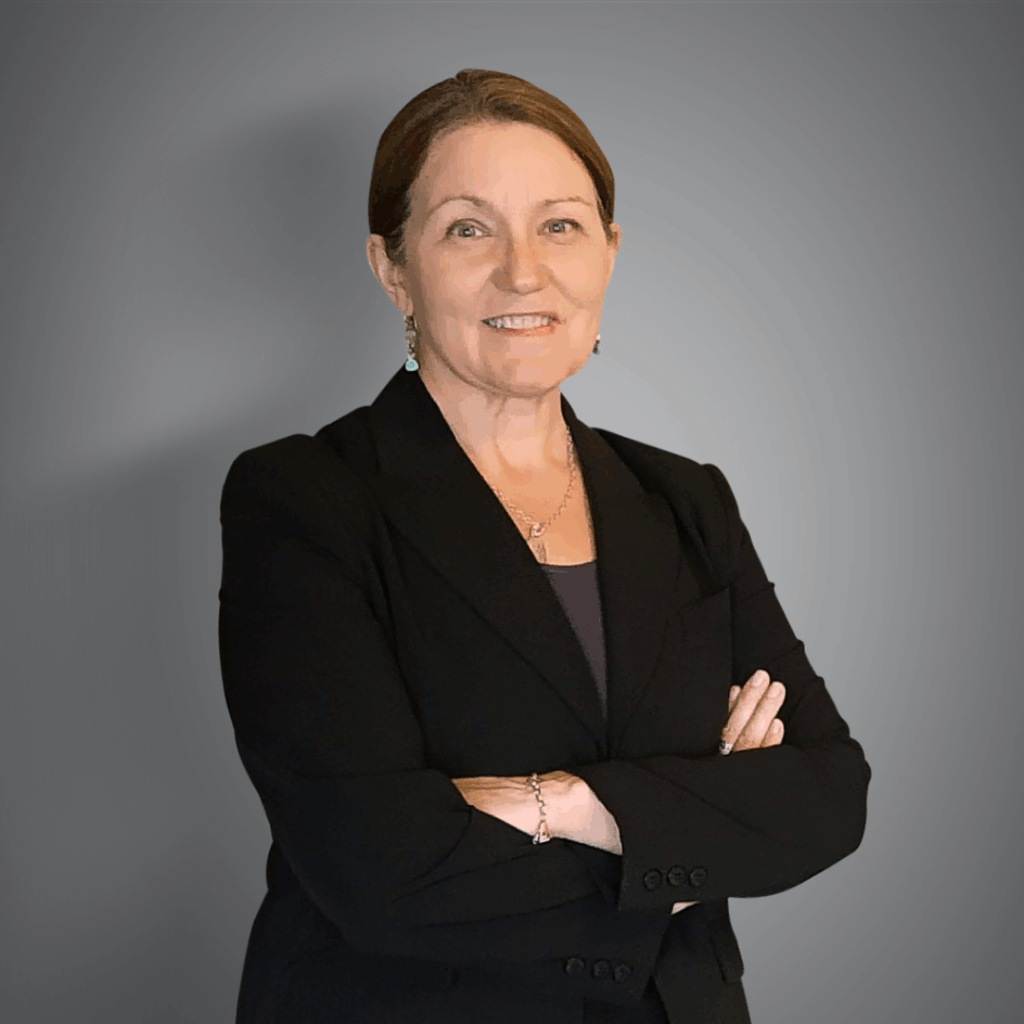
Lori Payne is a visionary leader, consultant, and founder of Project Blue World. Driven by the Blue Zone theory of longevity and happiness, she spearheads global initiatives from Winnipeg to foster quality of life, sustainable energy, and community development. Through international collaboration, Project Blue World empowers citizens and leaders alike to create positive, lasting change locally and worldwide.
In this episode of Marketer of the Day, Lori Payne discusses Project Blue World's mission, the science and inspiration behind Blue Zones, and strategies for linking happiness, longevity, and sustainability. Lori shares insights from energy transformation projects in Manitoba and beyond, including innovative uses of hydro and biofuels, global partnerships, and the critical need for clarity in information. She highlights community-driven initiatives, avenues for direct involvement, and how anyone can contribute to a healthier planet while achieving growth and development goals.
Quotes:
“Project Blue World is about changing the world, project by project, country by country, so every citizen can achieve happiness and quality of life.”
“We have the brains and technology, and the global commitment, to maintain our planet’s atmosphere and ensure future generations thrive.”
“There’s so much being done behind the scenes. When knowledge is shared, and collaboration happens, communities and leaders can create real impact.”
Resources:
Podcast: Play in new window | Download (Duration: 32:23 — 44.5MB) | Embed
Subscribe: Apple Podcasts | Spotify | Amazon Music | iHeartRadio | Podchaser | RSS
